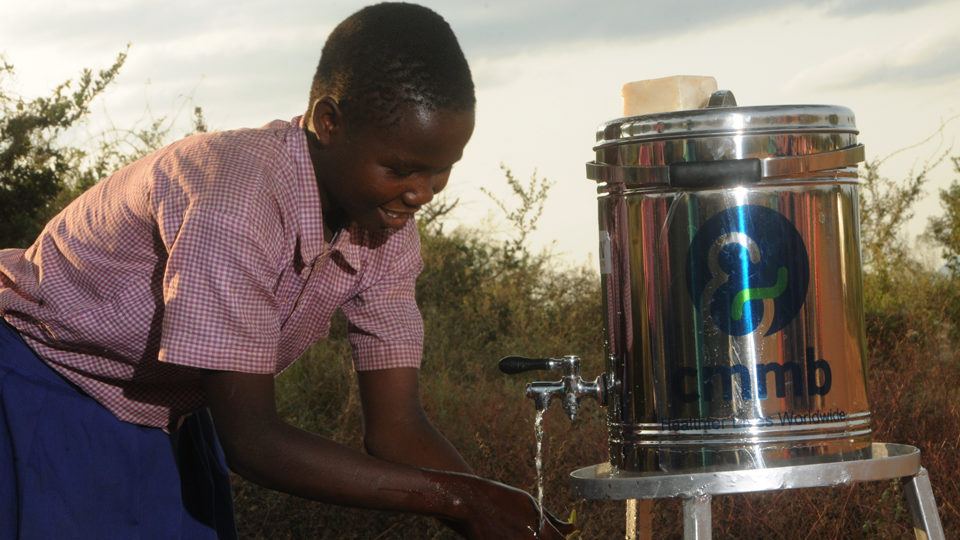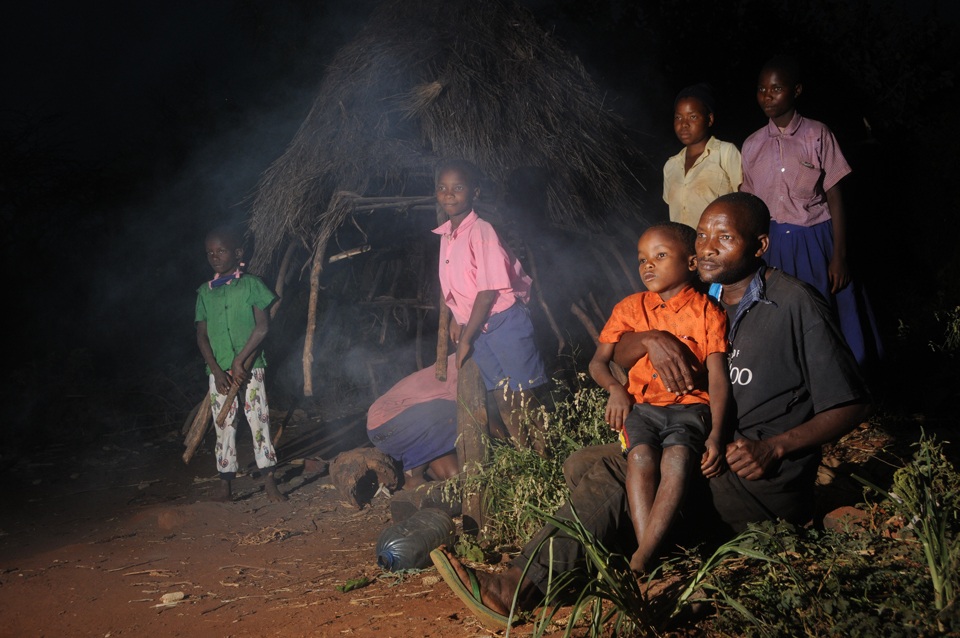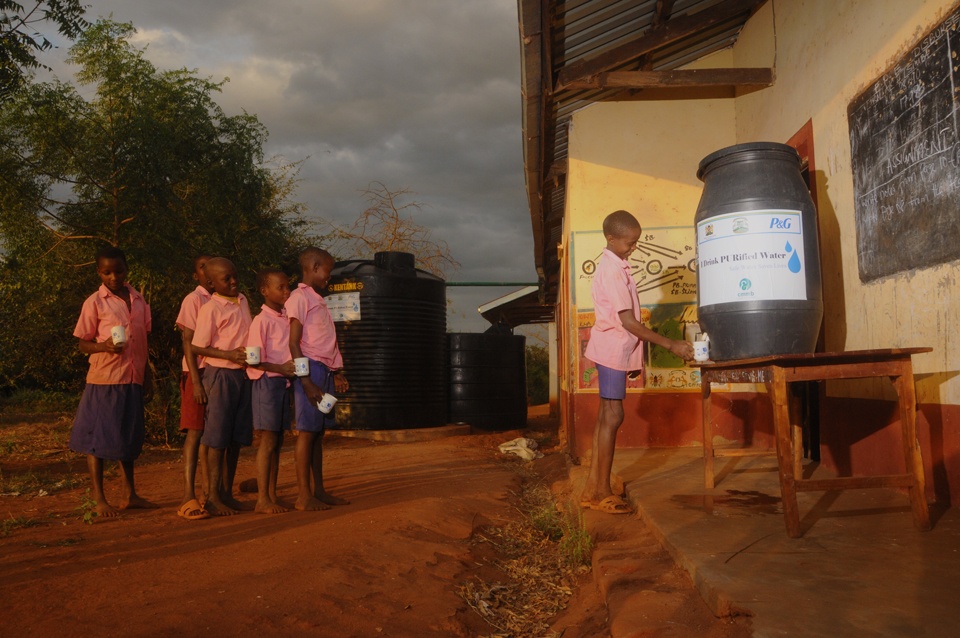Anastasia’s Story: The Impact of Clean Water On Education

Impact of Clean Water and Sanitation on Education
Access to clean water and sanitation is essential to children’s education. Millions of children go to school every day in unsafe learning environments with no drinking water, no toilets, and no soap for washing their hands. When schools have safe water and clean sanitation facilities, students’ learning outcomes improve and attendance rates increase, especially for young girls.
In 2019, CMMB’s Children and Mothers Partnerships program (CHAMPS) increased access to safe water for over 260,000 people. With the support of partners like P&G, we have reached over 40,000 households worldwide. When communities have access to clean water, it reduces the amount of time that children spend walking to collect water each day.
Anastasia’s Story
Anastasia is a 12-year-old girl who lives with her parents and 11 siblings in rural Kakuya Village in Kenya. Well-respected, hardworking, and liked by her peers, Anastasia is the prefect (student role model) of her sixth-grade class at her primary school.
However, poor access to clean water has forced Anastasia to miss school, jeopardizing her education and future.
A Two-Hour Journey for Water
For Anastasia and her family, the nearest water source is a well over eight miles away. She and her family must walk for two hours, cross a busy road, and climb a hill before lining up at the well to fetch water. Despite all this effort, the amount of water they are able to carry is never enough for the family to use at home and to take to school for drinking.
Access to clean water is also a problem for Anastasia’s school.
“During the dry season, teachers used to carry water to school on their motorbikes from the borehole to sustain the students,” said Mr. Mwakavi, the head teacher at Anastasia’ school. “Water is more important than food in this very dry area.”
“Water is more important than food in this very dry area.”
At the beginning of the COVID-19 pandemic, CMMB rapidly scaled up our water and sanitation (WASH) programs to help prevent the spread of the virus. One of the newly completed projects is a 40,000-liter rainwater catchment system at Anastasia’s school in Kenya. When school is back in session, Anastasia and the school’s 104 students and eights teachers will have convenient access to safe and clean drinking water.
In the meantime, this central location provides water access to the surrounding communities. The new system will provide enough water to last the children an entire year. Students will not have to miss school again because of water.
Dignity Products for Young Girls
For young girls, like Anastasia, sanitation is also crucial for their education.
In Anastasia’s village, the school dropout rate is very high. Locals directly attribute this to poor access to menstrual hygiene for adolescent girls. If schools do not have proper cleaning and sanitation facilities, girls are often forced to miss classes when they are on their period. Many girls are forced out of school entirely once reaching puberty.
To respond to this problem, CMMB provides dignity kits to adolescent girls. In this region, CMMB provided menstrual hygiene supplies to more than 400 adolescent girls—a major relief to impoverished families.
Anastasia’s father participated in CMMB’s dignity kit distribution program, picking up his daughters’ kits on their behalf. “The sanitary towels have brought joy to my daughters,” he said. “Girls should not miss school because of their normal female cycles.”
“Girls should not miss school because of their normal female cycles.”
Support Clean Water and Education
Clean water is essential to a child’s education. You can make an impact in the life of a child, like Anastasia. Support CMMB’s clean water projects by making a donation today. Give now.

